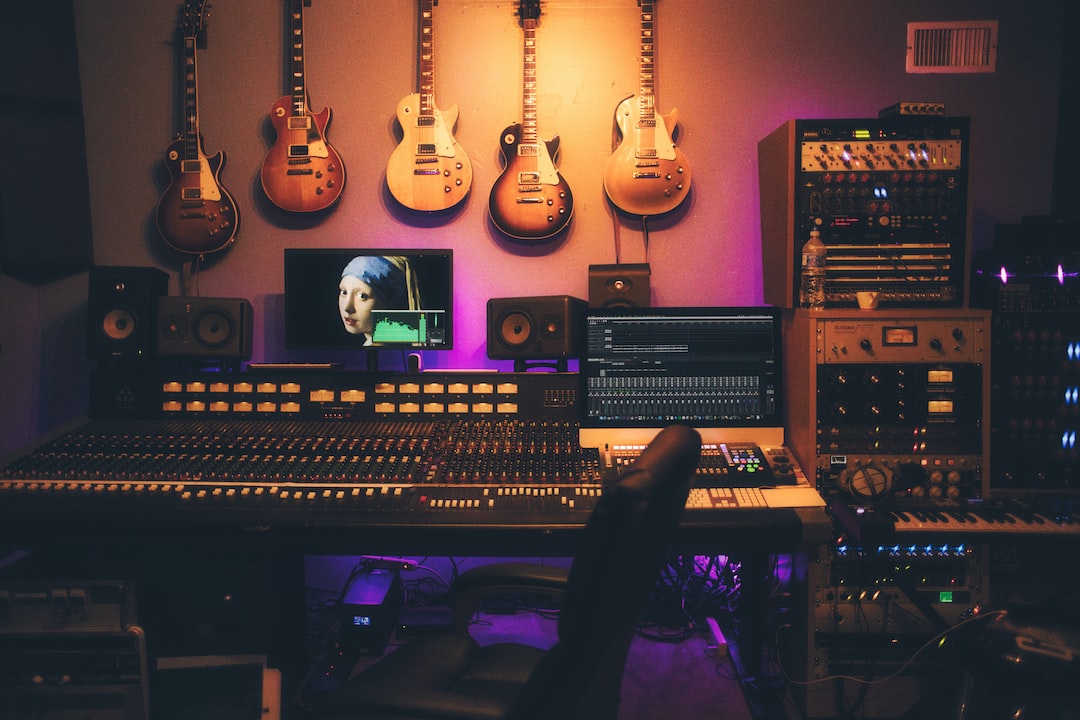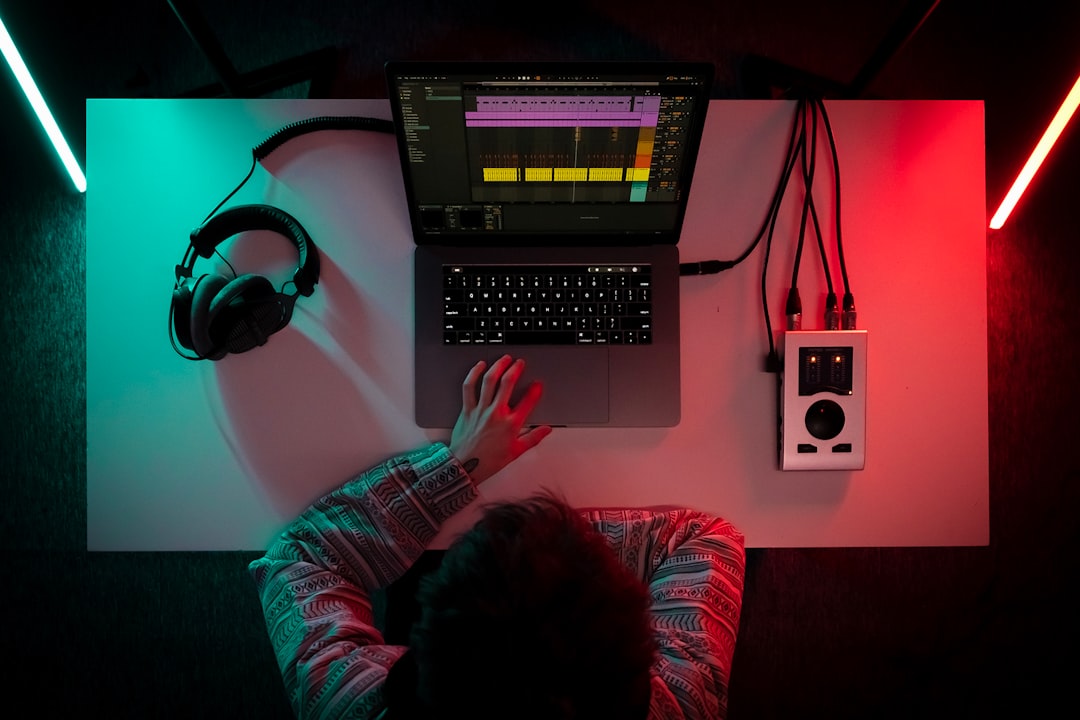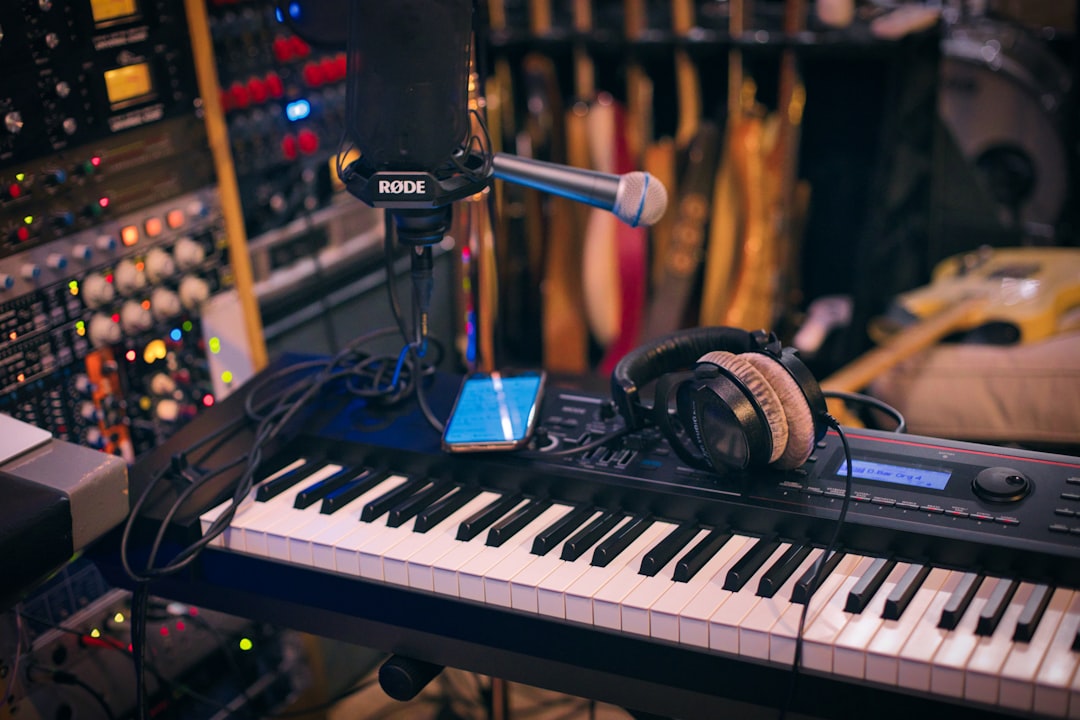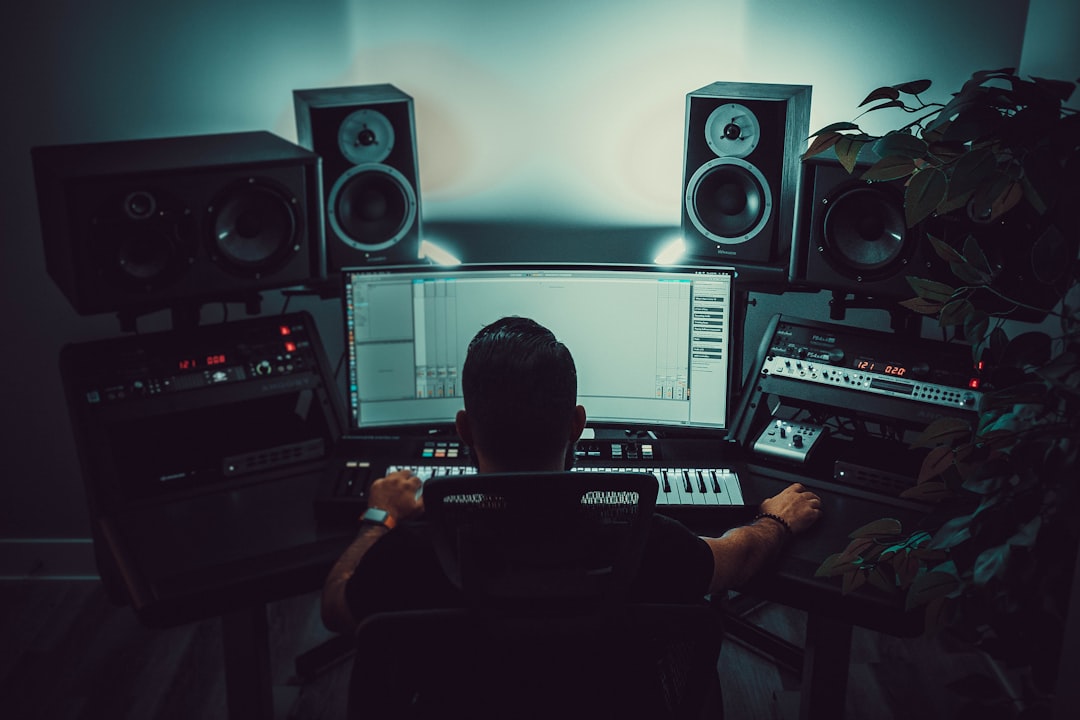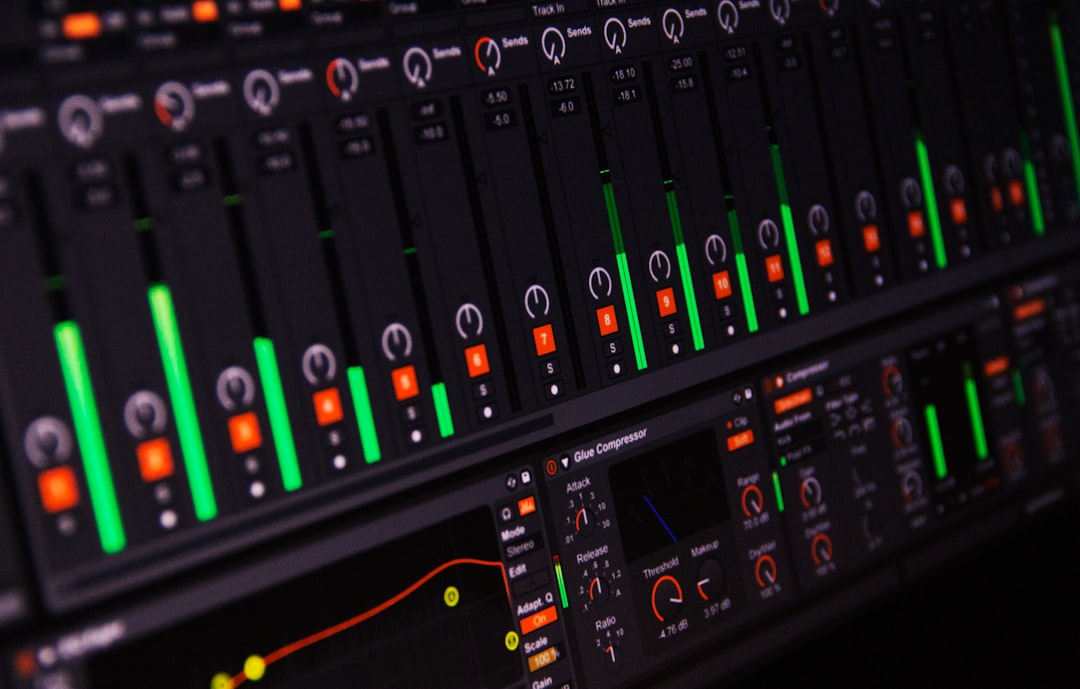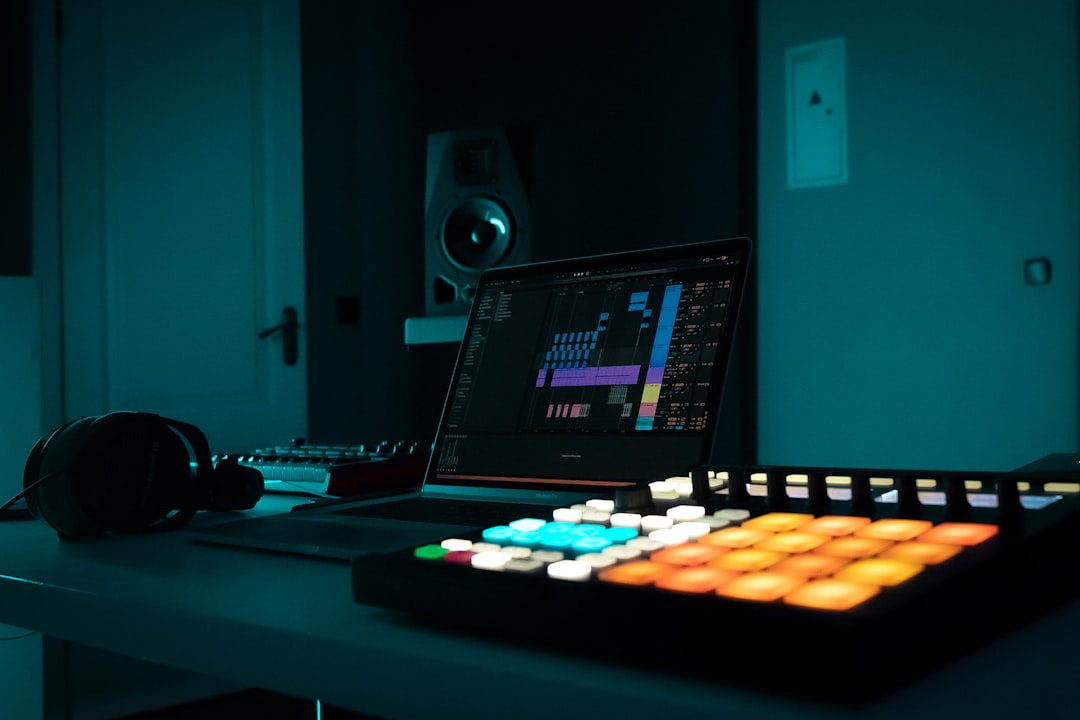The music industry has undergone significant changes over the years, from vinyl records to MP3s and streaming services like Spotify and Apple Music. As technology evolved, so did the way we consumed and created music.
Artificial intelligence (AI) is one of the latest technological advancements to revolutionize the music industry. AI has the potential to change how we write, record, and produce music, as well as how we listen to it.
AI can assist songwriters by providing creative inspiration, generating lyrics, composing melodies, and even creating beats. AI software can also analyze data to suggest which songs are likely to be hits and which ones aren’t.
Furthermore, AI can generate music on its own. This raises important questions about what we consider to be music and how the role of the artist might be redefined.
Personalized music recommendations are another area where AI can improve the music industry. Streaming services like Spotify use AI algorithms to provide listeners with tailored recommendations based on their listening history and preferences.
In addition, AI can enhance the audience experience at concerts and festivals by offering better sound quality and creating interactive experiences for attendees. AI can also improve safety measures at events by monitoring crowd movements and identifying potential safety hazards.
While AI has tremendous potential to enhance and streamline the music industry, there are also limitations to consider. For example, AI-generated music may lack the emotion and authenticity that comes with human composition. Moreover, there is the potential for AI to replace human musicians in the creative process altogether.
Despite these potential downsides, the future of music with AI is promising. As we move further into the digital age, it’s likely that AI will continue to play a significant role in shaping the music industry.
The AI Songwriting Assistant: Boosting Creativity and Efficiency
The process of creating music has remained relatively similar over the years, with musicians relying on their talent, creativity, and inspiration to come up with new tracks. However, with the advent of artificial intelligence, music creation has been revolutionized. AI-powered songwriting assistants are now helping artists boost their efficiency, overcome creative blocks, and come up with new ideas.
These songwriting assistants work by analyzing vast amounts of data, from lyrics and melodies to chord progressions and rhythms. They can then generate suggestions and recommendations based on this data, providing musicians with a fresh perspective and testing their creative boundaries. The AI assistants can also provide feedback on the quality of the song and suggest changes that can improve it.
Moreover, these tools can help in various stages of the songwriting process. For example, during the initial stages of creating a new song, the AI can generate random chords and melodies, proposing different possibilities that the musician can work with. In the later stages, the AI can analyze the lyrics, suggesting rhyming words or alternative phrases that would fit better with the melody. This collaboration between the musician and the AI can produce remarkable results that would otherwise be difficult to achieve.
The benefits of the AI songwriting assistants go beyond just creativity. They can significantly boost efficiency by saving time that would typically be spent on endless iterations trying to come up with the ideal composition. This can be especially helpful for musicians who have tight deadlines or limited resources, allowing them to focus more on other aspects of music production.
However, there are concerns that this technology might replace human creativity altogether. Although AI can create music, it’s essential to note that it does so based on inputs it receives from humans. Therefore, it’s up to the musician to decide how much creative influence they give to the AI. Additionally, AI-generated music might not have the same emotional depth and personal connection that human-created music can have.
In conclusion, AI songwriting assistants have the potential to revolutionize the music industry by boosting creativity and efficiency. However, it’s crucial to remember that AI is a tool that can aid musicians in their creative process, but it cannot replace the human touch that makes music so personal and powerful.
Therefore, it’s up to the musician to decide how much creative influence they give to the AI.
AI-Generated Music: Redefining What We Consider Music
As AI continues to advance, we are seeing a rise in the production of AI-generated music. This type of music is created solely by algorithms and machines, without any human input. While the idea of nonhuman-created music may seem strange to some, AI-generated music is already making waves in the industry.
One of the most significant benefits of AI-generated music is its ability to push boundaries and redefine our understanding of what music can be. With AI, we can create sounds and rhythms that humans may not have previously thought possible. This opens up new possibilities for music in terms of genre, style, and experimentation. As a result, we are seeing new forms of music emerge that are challenging traditional notions of what is considered “good” or “bad” music.
Another critical aspect of AI-generated music is its potential to democratize the industry. For decades, the music industry has been an exclusive club where only a select few have had the resources and connections to succeed. With AI-generated music, anyone can create and distribute their music, regardless of their background, connections, or financial situation. This could lead to the emergence of exciting new talent that previously may never have had the opportunity to break into the industry.
However, there are also concerns about the impact of AI-generated music on the industry. Some worry that it could lead to a homogenization of music as algorithms generate similar sounding tracks. There are also questions about the ownership of AI-generated music and who has the rights to the creations of the algorithms.
Despite these concerns, it is clear that AI-generated music is here to stay and will continue to play an increasingly influential role in the industry. As we continue to explore its possibilities, we will undoubtedly see it reshape the way we create, listen to, and appreciate music.
As a result, we are seeing new forms of music emerge that are challenging traditional notions of what is considered “good” or “bad” music.
Personalized Music Recommendations: A More Tailored Listening Experience
The rise of streaming services and AI technology has revolutionized how we consume music. Streaming services like Spotify, Apple Music, and Tidal have millions of songs in their libraries, making it difficult for listeners to find music that they like. This is where AI technology comes in, providing a more personalized listening experience for users.
AI-powered recommendation systems take into account a user’s listening history, search preferences, and ratings to recommend songs and artists that they might like. The more a user listens to music on the platform, the more accurate the AI-powered recommendations become.
Personalized music recommendations have the potential to keep users engaged with a streaming service or platform, leading to increased revenue for the music industry. By providing users with a tailored listening experience, they are more likely to continue using the service and possibly spend more time and money on it.
AI-powered recommendation systems are also not limited to just music streaming services. Social media platforms like Facebook and Twitter use AI algorithms to recommend pages and people to follow based on the user’s behavior on the platform. In the music industry, this has led to partnerships between streaming services and social media platforms to provide a more holistic and personalized music experience for users.
However, the use of AI in music recommendation systems has also raised concerns regarding privacy and the ethics of data collection. AI algorithms need vast amounts of data to provide accurate recommendations, and this data can be used for other purposes beyond music recommendations, potentially compromising user privacy.
In conclusion, personalized music recommendations provide a more tailored and engaging listening experience for users. The use of AI technology has made it possible to analyze large amounts of data to provide accurate recommendations, enhancing the overall music experience. While there are concerns about privacy and data collection, the benefits of personalized music recommendations show the promising future of AI in the music industry.
In the music industry, this has led to partnerships between streaming services and social media platforms to provide a more holistic and personalized music experience for users.
Smart Concerts and Festivals: Enhanced Audience Experience and Safety
In recent years, the music industry has taken a significant leap forward as technological advancements have given rise to new possibilities. One of the most significant areas where technology is transforming the industry is in how concerts and festivals are organized and executed. The introduction of AI into the music space has resulted in smarter, more engaging, and safer experiences for fans attending live music events.
Smart concerts and festivals are a product of the implementation of AI, big data analytics, and IoT. Such events are designed to give fans a personalized experience while improving safety measures during outdoor gatherings. AI-powered event management systems can gather and analyze vast amounts of data, such as the number of attendees, the duration of the event, the music genres played, and the movement of the crowd. This data is used to assist event organizers in making informed decisions concerning logistics, marketing, and other critical areas of event management.
One of the most significant benefits of smart concerts and festivals is the enhanced experience that fans get during such events. With the help of AI and data analysis, promoters can gather information about attendees’ preferences, such as the type of music they listen to, and create personalized playlists for each attendee. Through this, fans can enjoy a personalized experience, which matches their unique preferences, increasing their overall satisfaction of the event.
Smart concerts and festivals also offer enhanced safety measures for fans, which is a crucial aspect of any outdoor event. For instance, AI-powered facial recognition systems can be used to identify potential security risks quickly. The technology can also predict crowd movements, detect anomalies, and even identify potentially dangerous situations before they occur.
In conclusion, the integration of AI into the music industry has significantly transformed the way events are organized and executed. With smart concerts and festivals, fans can enjoy a more personalized experience while also benefiting from enhanced safety measures. The benefits of smart concerts and festivals cannot be overlooked, and as the technology continues to evolve, the future of live music events is looking more promising than ever before.
The benefits of smart concerts and festivals cannot be overlooked, and as the technology continues to evolve, the future of live music events is looking more promising than ever before.
The Impact of AI on the Music Industry: Benefits and Limitations
AI has undoubtedly had a significant impact on the music industry. One of the most significant benefits is that AI has allowed artists and songwriters to boost their creativity and productivity. With AI songwriting assistants, it’s now possible to generate chord progressions, melodies, and even lyrics with just a few clicks. This has greatly improved the efficiency of the creative process, allowing artists to explore more ideas and create more music in less time.
Furthermore, AI-generated music has redefined what we consider music. AI can now create music that is indistinguishable from human-generated music. This means that AI-generated music has the potential to disrupt the music industry as we know it, making it more accessible and democratized. However, this also raises concerns about whether AI-generated music can replace human creativity and artistry.
Another benefit of AI in the music industry is its ability to provide personalized music recommendations. With AI algorithms analyzing listening habits, music streaming services can now provide a more tailored listening experience. This enhances the listener’s experience, making it more enjoyable to discover new artists and genres.
AI has also played a significant role in enhancing the concert and festival experience. With smart concerts and festivals, AI is able to analyze crowd behavior and provide personalized recommendations for attendees. Additionally, AI can be used to monitor and manage crowd safety, making concerts and festivals more secure and less prone to accidents.
Despite the many benefits of AI in the music industry, there are also limitations. One of the limitations is the ethical concerns surrounding AI-generated music. Some argue that AI-generated music lacks the authenticity and emotion that come with human-generated music. This has raised concerns that AI-generated music could lead to a future where only AI-generated music is produced, and human creativity is marginalized.
Another significant limitation of AI in the music industry is the potential loss of jobs. With AI taking over tasks previously done by humans, some fear that it could lead to job displacement and the loss of the human touch in music.
In conclusion, the impact of AI on the music industry has been significant. While there are certainly benefits, such as boosting productivity, democratizing access to music, and enhancing the concert experience, there are also limitations and ethical concerns that must be addressed. It is up to the music industry and society as a whole to explore the full potential of AI in music while also being mindful of its limitations and potential drawbacks.
In conclusion, the impact of AI on the music industry has been significant.
Conclusion: The Promising Future of Music with AI
As we have explored throughout this article, AI is making waves in the music industry, altering the way we create, listen, and experience music. From AI songwriting assistants to personalized music recommendations, AI is revolutionizing the industry and paving the way for a promising future.
One of the most significant benefits of AI in the music industry is its potential to boost creativity and efficiency. With AI songwriting assistants, musicians can effortlessly compose music and experiment with new sounds and effects. Additionally, AI-generated music is redefining what we consider music, expanding the range of sounds and styles we can explore.
Moreover, AI is driving personalization in the music industry, enabling music streaming services and recommendation engines to provide users with tailored listening experiences. This means we can expect better music recommendations that accurately capture our tastes and preferences, leading to different and more interesting musical discoveries.
Smart concerts and festivals are also on the rise, with AI-powered analytics tools being used to improve the audience experience and safety. With AI, event organizers can predict attendance levels and adjust ticket prices accordingly, monitor crowd activity and identify potential safety concerns, and even tailor music to the audience’s preferences.
Despite the many benefits of AI in the music industry, there are also some limitations to its implementation. For instance, AI-generated music is not always well-received, and many people are skeptical about whether it will ever be a substitute for the genuine feelings and emotions that come from human-made music. Additionally, concerns about job loss and ethical AI practices must be taken into account as we continue to integrate AI into the industry.
In conclusion, while there are some limitations to AI in the music industry, its benefits far outweigh its drawbacks. As we continue to integrate AI into the creation, production, and distribution of music, we can expect a future that is more creative, personalized, and safe, and that expands the boundaries of what we consider music.
